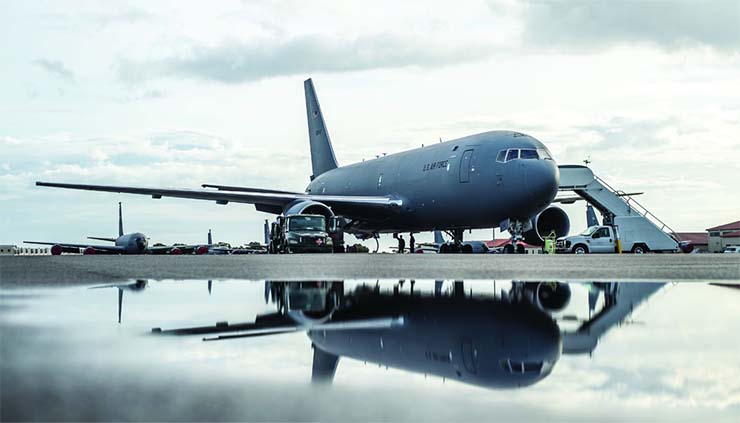
Washington: The US Air Force’s next-generation tanker was supposed to be the ideal candidate for a fixed-price development program.
Indeed, when Boeing first won the deal to build what’s now known as the KC-46, the defence contractor said it would use a “low-risk approach,” basing its design on the existing Boeing 767 commercial airplane. The contract was firm-fixed-price, meaning Boeing was on the hook if costs ran higher than expected.
Nearly 13 years later, Boeing has absorbed $7 billion in cost overruns, far more than the contract value of $4.9 billion. For years, the tanker, designed to refuel aircraft in flight, has been plagued by delays, production errors and a faulty vision system that required a complete redesign.
While Boeing has paid the financial price, the company and the Air Force have spent years trying to make the program work. The initial contract award called for the combat-ready tankers to arrive in August 2017; the first arrived in January 2019. In the years that followed, the KC-46 program was beset by further delays, including production line problems that regularly stalled deliveries and an underperforming vision system. That system is years behind schedule and expected to come in October 2025.
Boeing’s experience with the KC-46 and other programs in recent years has turned into a “cautionary tale” on the risks of entering into fixed-price development contracts, said Steven Grundman, a former Pentagon industrial base chief who now works as a senior fellow at the Atlantic Council think tank.
The KC-46 story “makes both sides of the market — the Pentagon and the contractors — sharpen their pencils,” Grundman said. “The Pentagon will be more cautious about programs that it thinks [lend themselves to] an efficient and effective fixed-price contract type. And contractors will be more discerning about the readiness of their engineering chops and the ability of their balance sheets to absorb risk.”
While analysts don’t expect the Pentagon to entirely shy away from fixed-price contracts, they said the military and businesses will think long and hard about which future deals make sense for such a contract structure — and when another path might better serve a program.
Air Force Secretary Frank Kendall, who was the Pentagon’s deputy acquisition chief when the original tanker contract was awarded, has said the service didn’t look closely enough at some design elements and wasn’t sceptical enough of the rosy picture Boeing painted. And he has acknowledged a cost-plus contract, meaning one that covers a company’s expenses as well as some profit, might have been a better choice — for both sides.
“In a fixed-price, you’ve got to let the contractor kind of do what it wants because he’s taking the risk associated with the cost,” Kendall said.
Bryan Clark, the director of the Centre for Defence Concepts and Technology at the Hudson Institute think tank, said there will always be a place in the Pentagon for fixed-price contracts. “The idea of fixed-price contracts is still very popular within the [Department of Defence] because contracting officers like it; it’s a good way to show that you’re holding the line” against cost overruns, Clark said.















